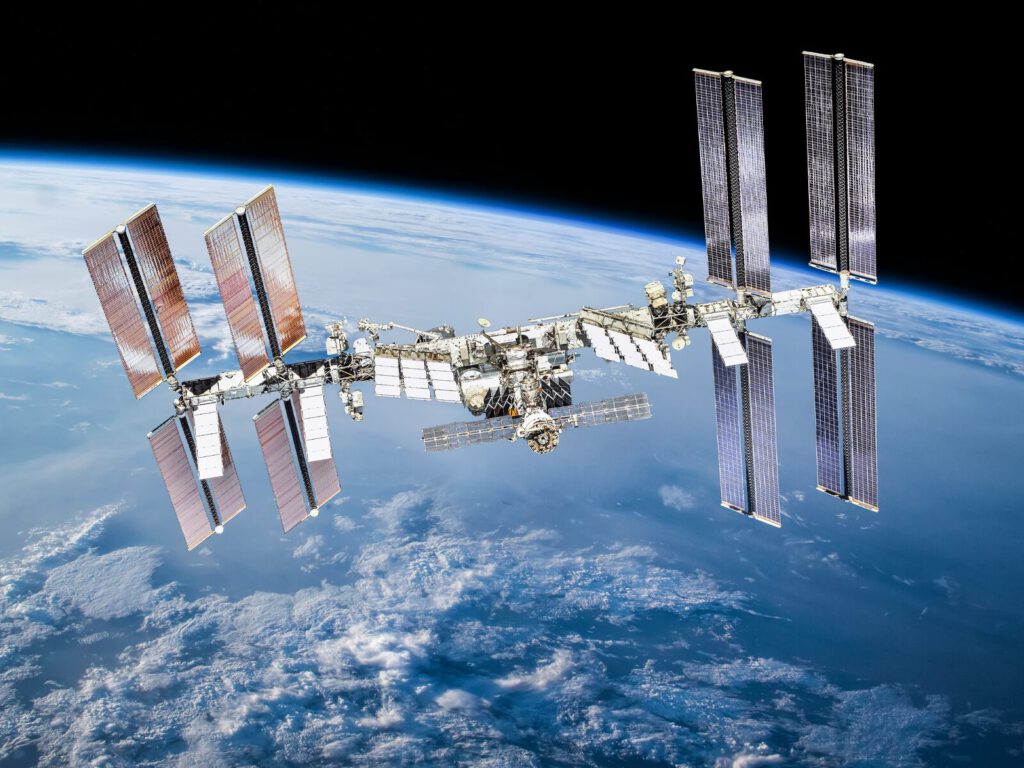The Applied Technical Services (ATS) Family of Companies offers single event effect (SEE) radiation testing. Single event effects are high-energy disturbances that can cause catastrophic damage to electrical equipment. With proper testing, manufacturers can mitigate these effects before the start of a space mission.
A Brief Overview of SEEs
Single Event Effects (SEEs) form from a single energetic particle. They occur when high-energy heavy ions or protons pass through a semiconductive material and deposit energy. SEEs can be either destructive or nondestructive, potentially increasing the risk of failure on a space mission.
Types of SEEs
Single Event Burnout (SEB):
When the single strike of an energetic particle produces a fixed high current state, catastrophic failure will occur.
Single Event Upset (SEU):
Charged particles will ionize the places they pass through and produce errors in circuits. As a result, they will leave behind electron-hole pairs. These soft errors are reset or rewired in order to resume regular functioning.
Single Event Transients (SETs):
When voltage turns on and off, it peaks and resettles. This analog response can cause problems for certain electronics that cannot handle change. Single
Single Event Functional Interrupts (SEFIs):
The control circuitry stops functioning and usually requires a power reset to resume regular functions.
Why SEE Radiation Testing Is Necessary
Most companies that manufacture electronic components and devices, as well as organizations that purchase these products for aerospace applications, consider how they will be affected by high-energy particles. SEEs can create anything from minor issues to catastrophic failures. Given the potential risks, manufacturers must thoroughly test all components and devices before entering aerospace.
How SEE Radiation Testing Works
To prevent failure, SEE radiation testing commences before a mission begins. While on the ground, the test will quantify any potential risks to electrical equipment.
Procedures like SEE, SEL, and SET tests aid manufacturers in identifying and isolating the issue. If a test does reveal an adverse single event effect, the testing company can help their client develop a mitigation plan. SEE radiation testing and reports help select the correct electronic components for aerospace equipment.
Radiation Testing Lab Capabilities
- MIL-STD 750 and MIL-STD 883
- TM 1017
- TM 1019
- TM 1020
- TM 1021
- TM 1023
- TM 1080
- ASTM F1192
- ESCC 22900
- ESCC 25100
- EIA/JESD57
Accreditations and Quality Standards
Radiation testing standards ensure that labs and facilities meet specific requirements, which include common measurement standards, safety, reliability, and logistical system alignment. Our SEE radiation testing services meet the requirements and standards enforced by the Defense Logistics Agency (DLA). The ATS Family of Companies is also an ISO/IEC 17025:2017 accredited organization.
Contact Us
We can provide affordable and convenient solutions to any of your aerospace issues. If you are looking for single event effect (SEE) radiation testing services, contact us today!



